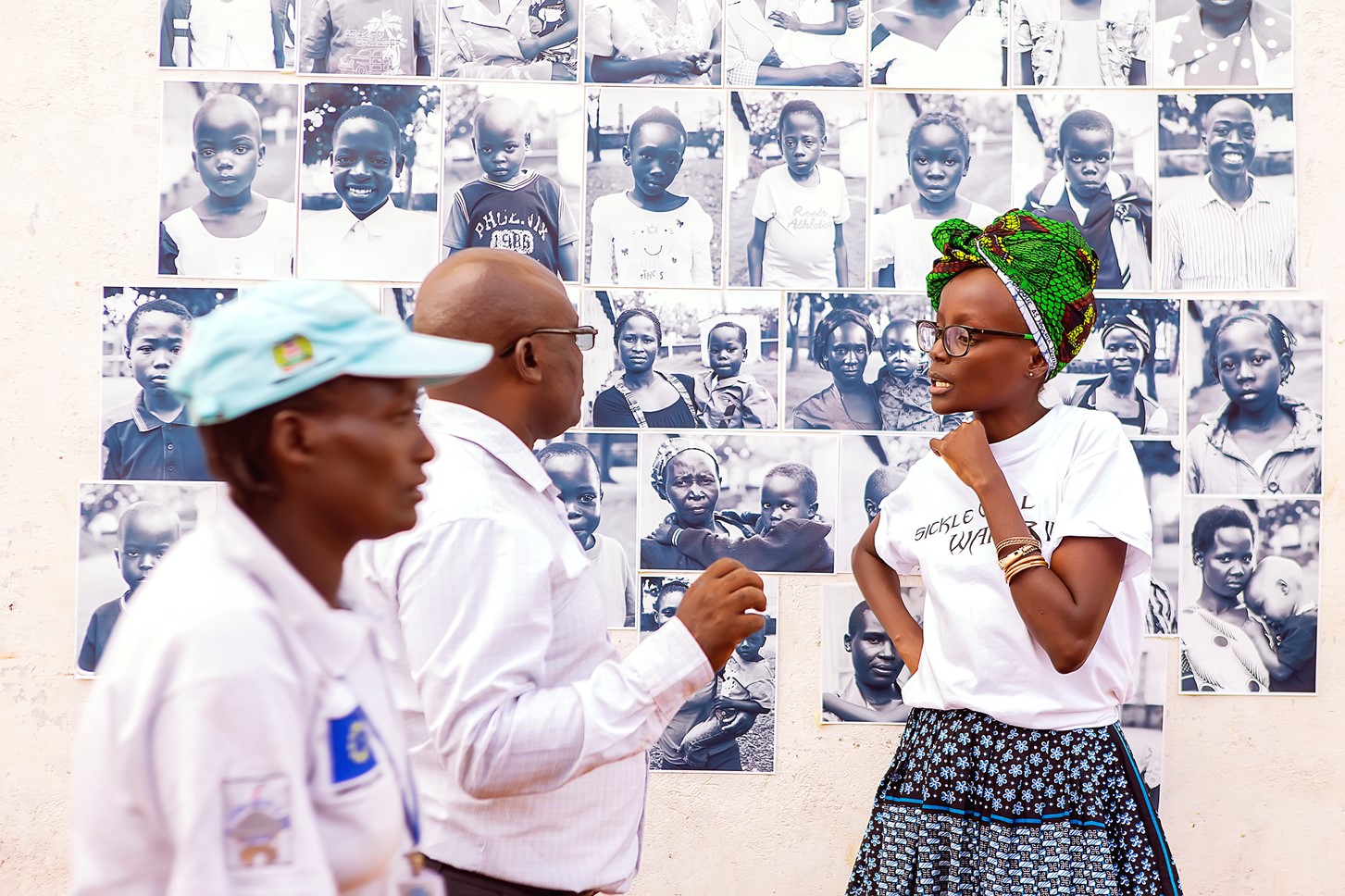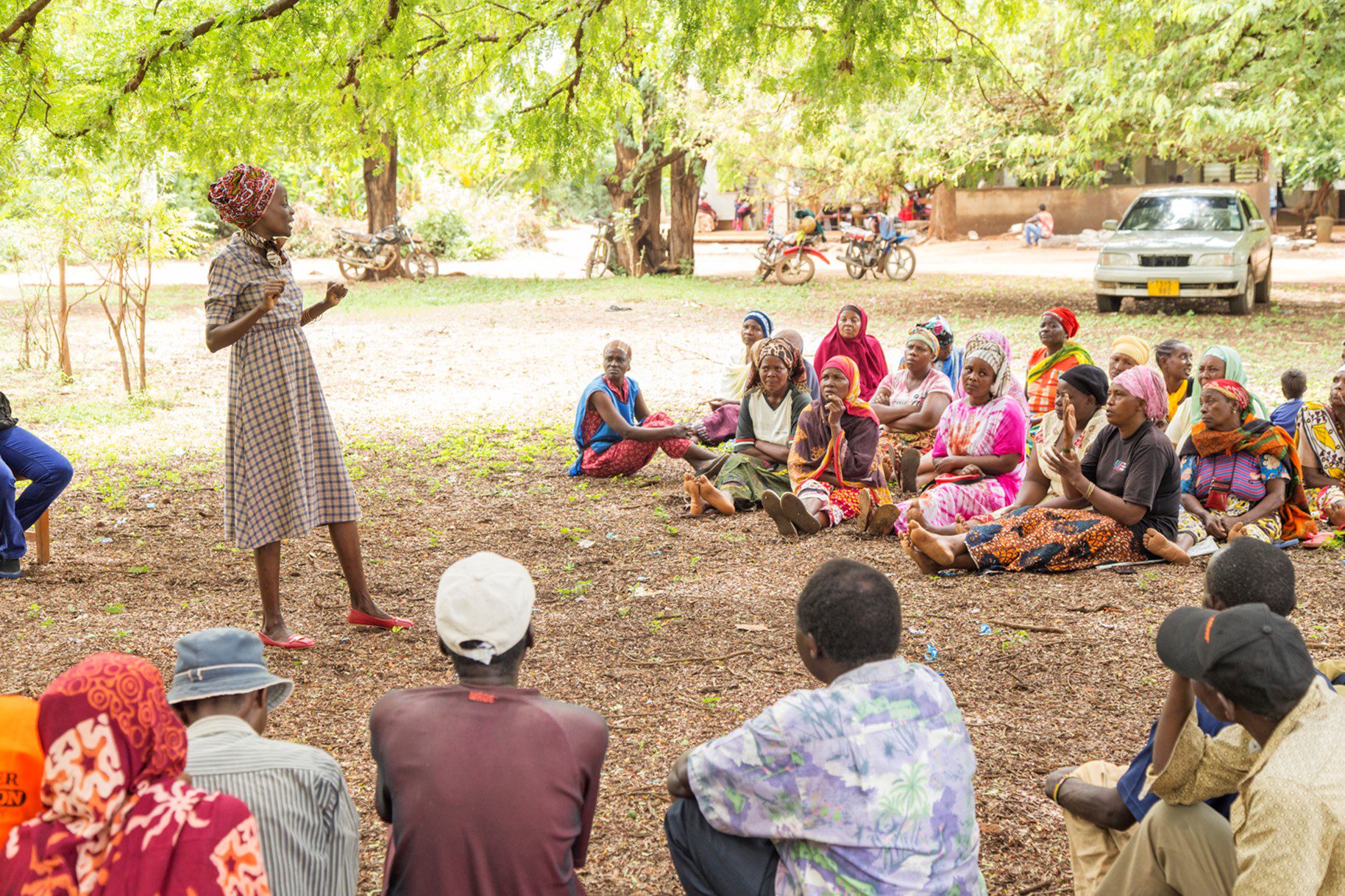Lea Kilenga was diagnosed with sickle cell disease at birth – she wasn’t expected to live past the age of eight. However, 20 years later, Lea is at the forefront of sickle cell and non-communicable disease (NCD) advocacy in Kenya. Her resume is impressive – Executive Director of the Africa Sickle Cell Organization, Advisory Committee Member to the NCD Alliance, Founder of the 10003 Warrior Project, and soon a master’s student in Global Health Delivery.

Photo by Paul Koyanga Masamo
As the pandemic has challenged leaders across the world to respond to the crisis, Access Accelerated is spotlighting the champions who are helping ensure the needs of people living with chronic conditions are met and their care is maintained. We spoke with Lea – who has actively engaged with Access Accelerated since 2018 – for her perspective.
How did you get started in the area of health advocacy?
I don’t have a background in health nor do I have a degree in health. I studied international business and I came into advocacy to make a case for sickle cell. It started as a photography project – taking photos of people with sickle cell around the country – but I soon realized I couldn’t go on taking photos without finding a proper solution to the problem.
I came home to look for the person in charge of sickle cell disease at the Kenyan Ministry of Health and I was put in touch with Dr. Kibachio Joseph Muiruri Mwangi, the then-head of the NCD Division.
How has COVID-19 affected you and other people in Kenya with NCDs?
When COVID-19 came into the county [of Taita Taveta, in the south-east of Kenya] we didn’t have medicine, the clinics were closed, there was no way for us to travel to Mombasa or Nairobi for specialized care, we couldn’t cross the border, and there were no private facilities.
That situation really opened my eyes to the importance of strengthening primary healthcare and improving access to essential healthcare services and medications. If a catastrophe strikes again and essential facilities are not functional it will be a very dire situation.
How did you overcome these challenges?
For the first month, I did nothing. I couldn’t move around because I wasn’t going to put myself, or my family, at risk. I live at home with my parents who are both over 60 years old and my grandmother who is older than 100. By the second month, I realized I couldn’t continue like this – I couldn’t access the care I needed. I thought to myself, if I am feeling this way, how are other people feeling? So that’s when I requested funding from the NCD Alliance of Kenya to do a household mapping project with community health workers.
How did the mapping work? What did you find out?
Community health workers went house to house collecting data on a number of factors including the accessibility and usability of insurance, the affordability of healthcare and their basic needs. Based on that data, we realized a lot of people were developing complications because of mismanaged or discontinued care.
We also discovered how the pandemic was impacting other elements of health and wellbeing. Because of job losses, entire communities were depending on one household for food. A lot of people did not have personal protective equipment (PPE) and many didn’t even know what PPE was. There was a lack of hand washing stations. There was an increase in sexual gender-based violence – particularly for younger women with mental health problems. Because many women didn’t have access to family planning, there were higher numbers of unwanted pregnancies.

Photo by Paul Koyanga Masamo
How has the Ministry of Health and other health authorities reacted to this information?
Solving these kinds of problems has to be done at a variety of different levels. The Ministry of Health is responsible for resolving supply chain issues to ensure access. Those at the county level are responsible for solving basic needs such as food and sanitation. But we also need to work with the community leaders – those who can support people on the ground.
The Ministry of Health has been instrumental in reopening clinics – not only through their work with the Kenya Medical Supplies Authority (KEMSA), but also by laying down ways of working. What does social distancing look like in clinics? What are the priority conditions that need to be addressed?
At the county level, diagnostic work had stopped completely – we didn’t know how many people were developing NCDs and we didn’t have the data to prioritize them, to ensure supply was equal to demand. By working with local communities, we started a screening program for diabetes, hypertension, even some cancers. Everyone who came through the hospital passed through the screening. Initially we did it for 30 days but the county hospitals have seen the importance of having data and it’s now been taken up full time.
Have there been any positives to come from COVID-19?
I think the biggest benefit of COVID-19 has been the willingness of the government to listen, and involve people like me. Because they don’t have eyes or ears on the ground, no one is in the hospitals and they don’t have any data, they need to rely on lived experiences. If they say clinics are opening, is there someone who can verify this? What kind of service are they receiving? Is there someone who is dying because they cannot access medicine?
The second positive is the willingness of the community across the board to support in any small way the needs of people living with NCDs. No matter what is needed, how big or small, people are supporting one another.
The third surprise is how people continue to demand their rights and hold the government accountable. The coronavirus has hit people really hard and I think many reached a point where they’ve realized if you’re not involved in decision making or policymaking or in the conversations that people are having on your behalf then you will be left out. I encourage everyone to get involved in conversations about your health – use your voice.
What’s the biggest lesson you think Kenya needs to learn from COVID-19 and managing chronic conditions?
The greatest lesson we have learned is the importance of evidence gathering and data. Analysis and reporting should be a continuous process, hand in hand with the programming components of the health system and policymaking. We can’t wait for a donor or other stakeholder. The government needs to prioritize evidence because this is how we can know how resources are being used, how they should be allocated, and help us plan for the future.
The second thing is primary healthcare. It is very difficult to be trapped in a community where you don’t have access to healthcare. I would really emphasize, especially with regards to universal health coverage, that the lower-level health system needs to be strengthened for those marginalized people, for those vulnerable communities who rely heavily on them. If you really want to open up access to healthcare, that’s where you need to focus.
Access Accelerated is connecting with NCD champions around the world to reflect on how advocates and health leaders from different countries are managing the COVID crisis while continuing to address NCD prevention, treatment and care.